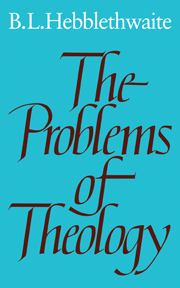5 - The problem of revelation
Published online by Cambridge University Press: 30 September 2009
Summary
Revelation and rationality
Western philosophers have been extremely suspicious of the notion of revelation. This is because, traditionally, divine revelation was held, particularly by Jews, Christians and Muslims, to consist in the authoritative declaration of certain fundamental truths and injunctions, inaccessible to man's unaided powers of reason and reflection. Philosophers, by contrast, have tried to make sense of the world and human life in ways accessible, at least in principle, to any reflective mind. The apparent irrationality of revelation-claims is that they allegedly rest on an unchallengeable and untestable basis. Moreover, as soon as serious attention is paid to the fact of rival revelation-claims in the different religions, it appears that the authority of any one religion's revelation-claims is undermined, or at least put in question.
However, this is not the only conception of divine revelation to be found in the history of religions. The Indian writer, K. Satchidananda Murty, in his book Revelation and Reason in Advaita Vedānta, asserts that all knowledge is revelation, since reality discloses itself to us as we discover and penetrate its nature. All discovery and experience of God are God's disclosure of himself to us. Murty illustrates this view quite liberally by quotations from the whole history of religions, east and west. On this view divine revelation is not inaccessible to the enquiring spirit. On the contrary, as any man learns or trains himself to experience the world religiously, revelation occurs.
Even the religions of Semitic origin, with their great emphasis on a holy book, containing the special revelation of God, also, as we saw in the last chapter, for the most part teach that some knowledge of God is universally accessible to human reason or experience.
- Type
- Chapter
- Information
- The Problems of Theology , pp. 85 - 101Publisher: Cambridge University PressPrint publication year: 1980

